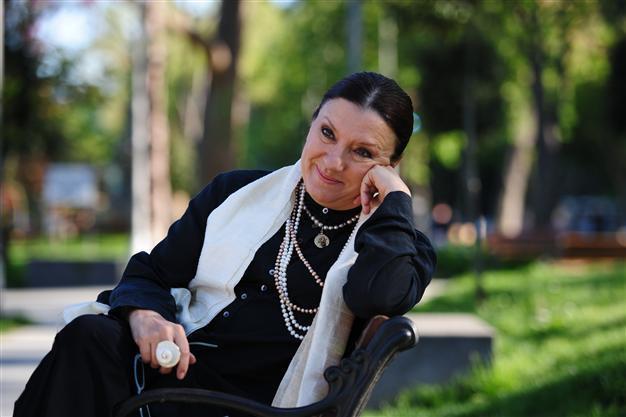City Theaters’ ex-head castigates regulations
ISTANBUL - Hürriyet Daily News

City Theaters’ former art director Ayşenil Şamlıoğlu (L), whose career in art spans a total of 38 years, says that every field in Turkey is being subjected to a transformation.
Istanbul Municipal Theaters’ former general art director Ayşenil Şamlıoğlu has bitterly criticized the recent overhaul of the regulations governing the theaters, breaking her silence on the issue for the first time since her resignation.“This intervention cut off not only my own oxygen line, but Turkey’s. A revolution is slowly coming to pass in every sense. A new structure synthesizing the East and the West is being woven,” Şamlıoğlu, whose career in art spans a total of 38 years, told the Hürriyet Daily News. Every field in Turkey is being subjected to a transformation, Şamlıoğlu said, adding that this process of “revolution” will ultimately reach fruition. “What kind of a Turkey will we see when this process reaches completion? It scares me,” she said.
Şamlıoğlu also denied that there was any possibility that she might resist the new changes, because she has been completely ignored. Making art under such circumstances is impossible, she said. “When I took office [as art director], I suggested a study of the regulations. It did not even make it onto anyone’s agenda. A law on the theater would have been the most ideal [option]. We are still governed by the constitution [devised by] the 1982 coup,” she said, adding that the new regulations had come about very abruptly.
Former administrators became target
The former administrators of the City Theaters became targets of the right-wing press when they instituted a minimum age of 16 to attend certain plays, according to Şamlıoğlu. “They ran headlines reading ‘Immoral plays.’ They depicted [us] as targets. There have been no explicit [scenes] on stage, no pornographic works. Our repertoire was not like that. I do not understand what they take us for. We have been accused of immorality.”
Şamlıoğlu also said those who think differently from the management are being marginalized, and they have been portrayed as people estranged from their own values and society. “Are they the sole owners of this country’s culture and values? Not us? What has carried me to the present is the strength I gather from my values.”
Previously the Finance Ministry’s approval was required for all staff recruitment at the City Theaters, but recently a change had been made requiring only the approval of the municipal council, Şamlıoğlu explained. “Just as we were thinking we would be cut some slack on many issues, [they] dropped this new [set of] regulations on us. How was I to know those who were watching us dreamed of ruling over us instead?” said Şamlıoğlu.
According to the new regulations, the general art director, the theater manager, a department head, a civil servant and three members appointed by the mayor will together constitute a literary council that will determine the plays to be staged in the City Theaters, and the general art director will stage a repertoire based on this council’s choices. Under the former regulations this council was defined solely as an advisory body to the management council.
Taking charge of archive
“If they truly want to take charge of something, then they ought to take charge of the theater’s archives. They have destroyed a 98-year-old tradition. Part of the archives was sent to SEKA [Turkey’s Cellulose and Paper Mills Inc.] while the rest was plundered and is being sold in second-hand bookstores. Even the resumés of deceased or retired artists have not been archived. Everyone in civilized countries works within their own field of expertise. That is why they are civilized.”
















